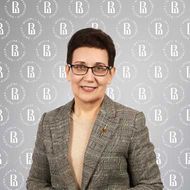- A
- A
- A
- ABC
- ABC
- ABC
- –ê
- –ê
- –ê
- –ê
- –ê
- HSE University
- Faculties
- Faculty of Economic Sciences
- School of Finance
- Events
- Online Research Seminar «Empirical Research in Corporate Finance»
-
The School
- ABOUT
- Staff Members
- Doctoral Students
- Joint Departments with Partner Companies
-
RESEARCH ACTIVITIES
- Laboratories
- Series “Advanced Studies in Emerging Market’s Finance” at Springer Nature o Networking with International Academic Associations
- Networking with International Academic Associations
- Journal of Corporate Finance Research
- Research Seminars
- International PhD Workshop
- International Seminar “Systemic Risks in the Financial Sector”
- International Conference «ESG Corporate Dynamics: the Challenges for Emerging Capital Markets»
- Yasin (April) International Academic Conference
-
RESEARCH WORKING GROUPS
- Research Working Group "Innovations in the Banking Sector, its Financial Stability and Prudential Regulation"
- BUSINESS EDUCATION
- Networking with Business Associations
- Networking with Professional Associations
-
DATABASES
-
119049 Moscow, Russia
11 Pokrovskiy boulevard, room S629
Phone:
+7 (495) 772-95-90*27447, *27947, *27190
+7 (495) 916-88-08 (Master’s Programme Corporate Finance)
- Email: df@hse.ru
Head of Corporate Finance Research Center, Dr., tenured professor
The HSE School of Finance is the leading Russian competence center in the field of corporate finance, business valuation, banking, stock market, risk management and insurance, accounting and audit.
HSE is the first Russian university in the global ranking "QS - World University Rankings by subject", 2022 in the subject area of Accounting and Finance. Moreover, the university is the 1-st in the rating "THE World University Rankings by subject" in the subject area of Business & Management Studies, 2022
Grishunin S., Ivashkovskaya I., Brendeleva N. et al.
Journal of Corporate Finance Research. 2025. Vol. 19. No. 1. P. 25-40.
Badr I., Rawnaa Ibrahim, Hussainey K.
In bk.: Opportunities and Risks in AI for Business Development. Vol. 2: 546. Bk. Opportunities and Risks in AI for Business Development. Prt. 636. Springer, 2025. P. 385-399.
Financial Economics. WP HSE. HSE University, 2025. No. 1/FE/2025.

Online Research Seminar «Empirical Research in Corporate Finance»
December 13th (Tuesday) 2022 16:00¬Ýonline¬ÝResearch Seminar¬´Empirical Research in Corporate Finance¬ª.
1. Konstantin Popov - Research Intern of Corporate Finance Center, National Research University Higher School of Economics, School of Finance PhD Student.
Topic: «Board Characteristics and ESG Performance: CEO's Moderating Role»
¬Ý
Abstract: In recent years have been widely investigating the effects of corporate governance characteristics on corporate performance. As the role of non-financial factors in the process of creating company’s value, many researchers focus their attention on the impact of Board of Directors on corporate Environmental, Social, and Governance (ESG) performance and disclosure. While most of researchers include Board size, independence and diversity in their models, there is a growing number of studies focused on the effects of Board human and social capital features on ESG performance. Many studies also consider CEO characteristics, mainly CEO power, as a moderating factor for Board’s impact on corporate performance.
Despite considerable block of researches on the issue, there are several gaps in academic literature. Firstly, although many researchers take into account existence of specialized Board sustainability committees, few of them consider particular characteristics of human capital concentrated in such committees. Secondly, existing studies rarely investigate the effects of strategy and audit committees’ composition on corporate ESG and financial performance. Thirdly, while there are studies considering CEO power as a moderating factor for Board impact on corporate performance, the issue of possible moderating effects of CEO human capital (i.e. education and professional experience) has not been sufficiently investigated.
We aim to fill these gaps, basing on the analysis of the sample of largest Russian public non-financial companies during the period from 2014 to 2020. We focus on the composition of Board committees, considering their “general” characteristics (size and independence), demographic (gander and national diversity) and human capital (education and professional experience) diversity. We also add in our research moderating effects of CEO power, measured by CEO tenure and role in the Board, and CEO human capital.
We believe that our research is relevant from both academic and practical perspectives. We fill several gaps in academic literature. Moreover, we offer new indices to evaluate Board and CEO power and human capital. As from practical point of view, we offer new approach to evaluating corporate governance composition and its effects for corporate sustainability and value creation.
¬Ý
2.Milica Simonovic – School of Finance PhD Student
Topic: « Board Structure and Disclosure of Intellectual Capital- An Empirical Study in Knowledge-Based Economies»
Abstract: The aim of this paper is to determine how the composition of the board of directors affects the disclosure of intellectual capital, human capital, structural capital and relational capital.
Bearing in mind that the share of intellectual capital is most pronounced in knowledge-based companies, for the purposes of this research, 40 listed companies from the IT industry, biotechnology and communication technologies were taken into account. The time framework is from 2015 to 2019. During this research, multiple linear regressions based on panel data were utilized.
The results show there is insignificant negative influence board average age, board meetings and CEO duality on intellectual capital disclosure. On the other side, there is positive association between indenpendence of board directors and disclosure information about intellectual capital. Moreover, the obtained results show that random effect is better (Hausman test) and there is no statisticly significant multicolinearity in any type of multiple regression.¬Ý¬Ý
Future research in this area should take into consideration the influence of other elements of corporate governance on the disclosure of information about intellectual capital.
¬Ý
Zoom Link:https://zoom.us/j/95590574043?pwd=SThNQyttN3ZuZ3VPYkRibHFYL1Yydz09
Conference ID: 955 9057 4043
Access Code:095849
¬Ý
Konstantin Popov
graduate student
Milica Simonovic
graduate student
- About
- About
- Key Figures & Facts
- Sustainability at HSE University
- Faculties & Departments
- International Partnerships
- Faculty & Staff
- HSE Buildings
- Public Enquiries
- Studies
- Admissions
- Programme Catalogue
- Undergraduate
- Graduate
- Exchange Programmes
- Summer Schools
- Semester in Moscow
- Business Internship
-
https://elearning.hse.ru/en/mooc/
Massive Open Online Courses
-
https://www.hse.ru/en/visual/
HSE Site for the Visually Impaired
-
http://5top100.com/
Russian Academic Excellence Project 5-100
- © HSE University 1993–2025 Contacts Copyright Privacy Policy Site Map
- Edit




